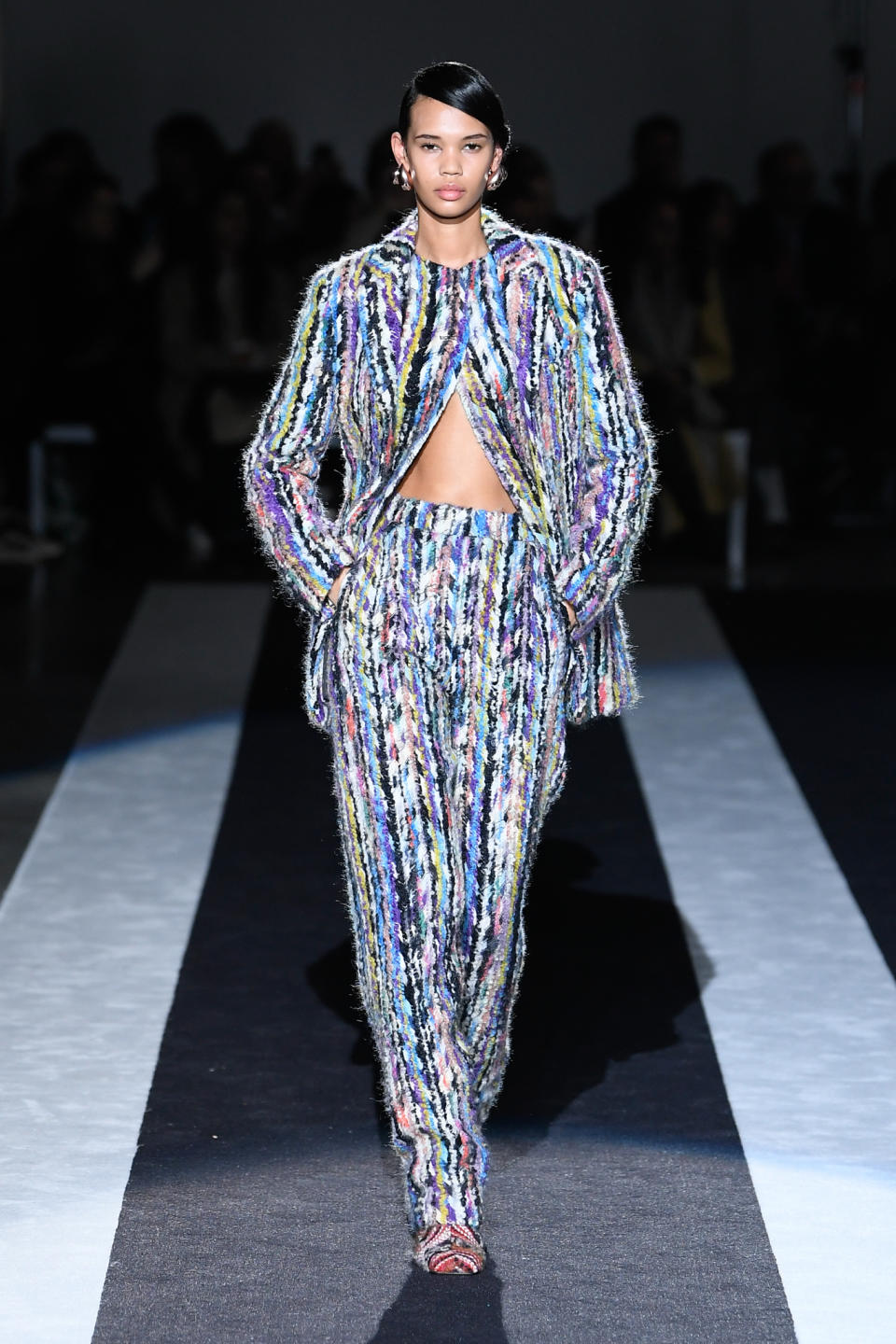Missoni Nabs Long-standing Supplier to Ensure Zigzag Knit Continuity

MILAN — Missoni is joining its luxury peers in securing continuity to its supply chain by acquiring one of its longstanding suppliers.
The Italian fashion house said Tuesday it has taken over Tricotex Srl, a leading manufacturer of high-end textiles. Based in Gallarate, in the outskirts of Milan and near Missoni’s headquarters, the company specializes in Raschel knit fabrics — a Missoni signature — made with special Caperdoni looms rather than industrial knitting machines and defined by a textured, coarse appearance.
More from WWD
M&A Activity Heats Up in Italy: Trussardi Acquired by Gruppo Miroglio
Clinical Skin Acquires Glytone From Pierre Fabre Laboratoires
Advent International Acquires Skala Cosméticos Brazilian Hair Care Brand
Financial details of the transaction were not disclosed.
“The acquisition is perfectly aligned with Missoni’s long-standing commitment to maintain direct control over its value chain, ensuring transparency and traceability of materials and production processes,” the company said in a statement. “By integrating Tricotex, Missoni will continue to preserve the know-how and tradition of an Italian leader in the processing of fine yarns, safeguard the unique identity of its production process and accelerate its growth trajectory,” it added.
In 2020 Missoni bought out T&J Vestor, its licensee for the Missoni Home collections, building on a partnership kicked off in 1983.
The acquisition of Tricotex Srl could signal a change of strategy, following the recent rumors that the owners of the maker of zigzag, fiammato and striped clothing had tapped Rothschild to explore a potential sale.
Italian investment fund FSI took a 41.2 percent stake in Missoni in 2018, while the founding and namesake family continued to have control with 58.8 percent of the shares.
Missoni is designed by Filippo Grazioli and helmed by chief executive officer Livio Proli. Rumors that OTB or that an industrial partner could be interested in Missoni’s production and artisanal capabilities fizzled quickly.

Missoni is one of several European players turning to M&A to support the pipeline’s know-how and craftsmanship.
Last year Brunello Cucinelli and Chanel teamed up to acquire a 24.5 percent stake each in Cariaggi Lanificio SpA, a wool and cashmere supplier. The Cariaggi family retained control of the namesake company with 51 percent of the shares.
The deal followed the acquisition a year earlier of a 43 percent equity in the supplier by Brunello Cucinelli alone.
In 2021, the Prada and Ermenegildo Zegna groups joined forces to acquire a majority stake in Filati Biagioli Modesto SpA, which specializes in the production of cashmere and other precious yarns, to ensure quality and their own Made in Italy production chain. The acquisition came a few weeks after Zegna bulked up its textile division with the takeover of Tessitura Ubertino.
M&A has also ramped up in Italy’s supply chain, with Gruppo Florence, for example, the luxury production pole established in 2020 by industry veteran Francesco Trapani through private equity fund VAM Investments with Fondo Italiano d’Investimento and Italmobiliare, grouping together high-quality, Made in Italy and family-owned Italian small- and medium-sized companies.
MinervaHub SpA, spearheaded by president Matteo Marzotto, is quickly emerging as a leading aggregator of SMEs producing components for luxury brands, while individual suppliers have been linking up to grow in size and negotiation power. One recent example is provided by Manteco, the Tuscany-based sustainable wool mill acquiring Casentino Lane, a storied spinning mill located in the Casentino area, a UNESCO World Heritage site.
Best of WWD


